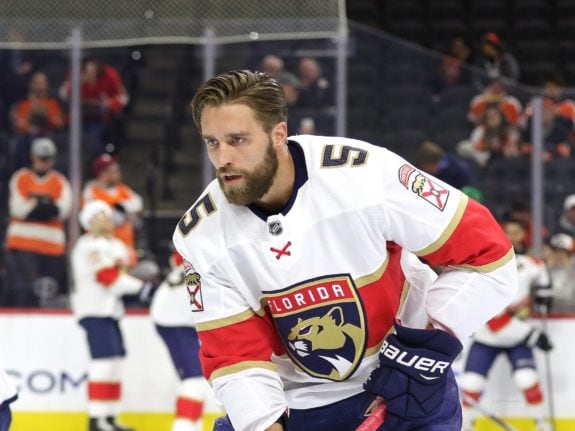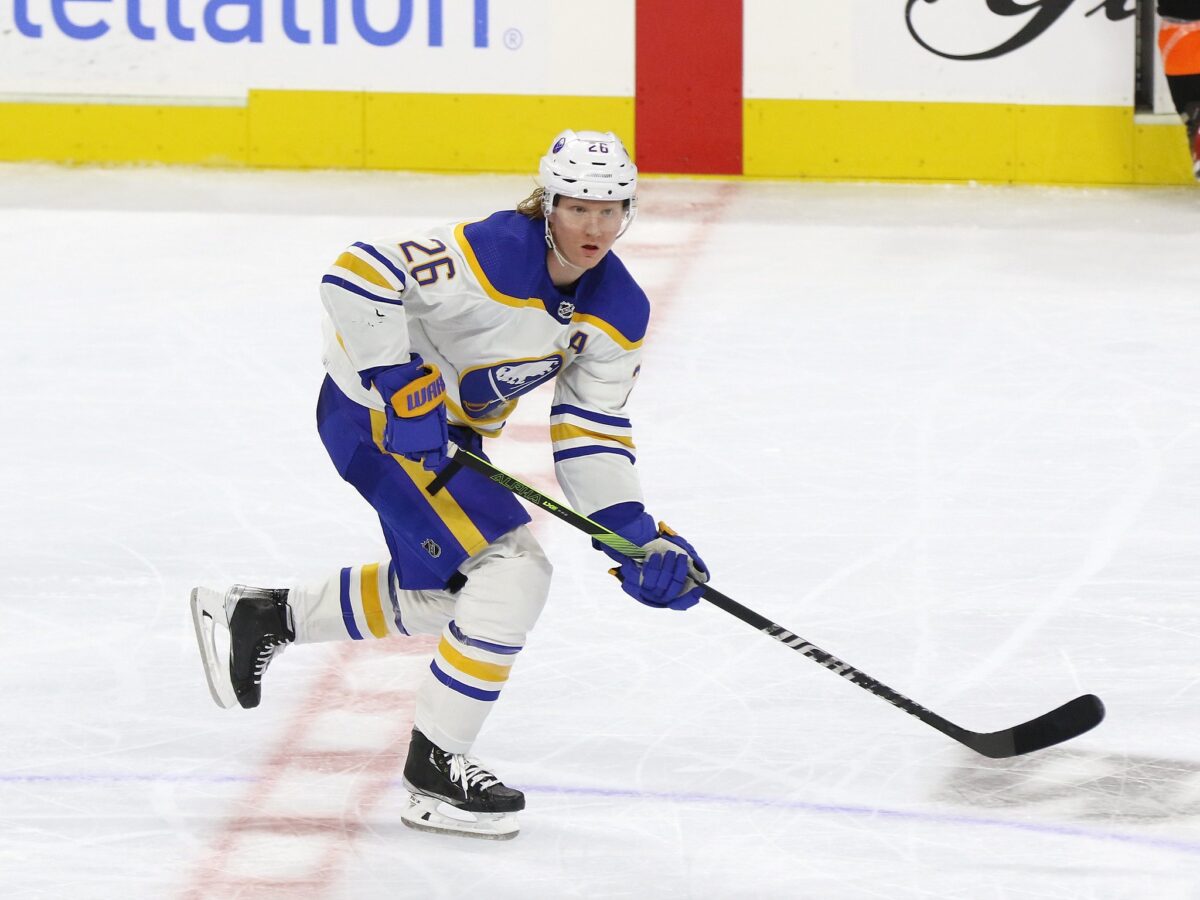This past season, 2021 first-overall pick Owen Power completed his first full NHL season and was rewarded with a third-place finish in Calder Trophy voting at the 2023 NHL Awards. Since 2000, only four defensemen (including Power) have been selected with the first-overall pick in the NHL Draft. How did the other three perform in their sophomore season in the league in comparison to their rookie year?
Erik Johnson, St. Louis Blues (2006 Draft, 2007-08 Rookie Year)
The first defenseman chosen No. 1 overall on this side of the millennium was Erik Johnson of the University of Minnesota. In his lone season with the Gophers he tallied four goals and 21 assists in 41 total games. After his freshman year, he signed with the St. Louis Blues.
In his first NHL season, the 2007-08 season, Johnson played 69 games and led all Blues defensemen in points with 33. He helped provide life to an aging team, but they were still bottom five in the entire league in total points. His defense was fine enough in his rookie season, but a lot of that can be attributed to early growing pains.
Prior to his second season, Johnson was injured in one of the strangest ways ever and it cost the Blues dearly as their former first-overall pick missed the entire season after tearing two ligaments in his knee after a golf cart accident just a few weeks from the first game of the 2008-09 season. Oddly enough, the Blues made the playoffs as the sixth seed in the Western Conference despite Johnson’s absence, but were bounced by the Vancouver Canucks in a sweep.
With his second NHL season pushed back a year, Johnson saw himself in an increased role and his minutes per game shot up from 18 to 21. In this new role, he found his stride defensively and the Blues just barely missed the playoffs, falling five points short of the eighth seed. In addition to the defensive improvements, he doubled his goal-scoring output in Year 2.
Aaron Ekblad, Florida Panthers (2014 Draft, 2014-15 Rookie Year)
The first Calder Trophy-winning defenseman drafted first overall since Bryan Berard, Aaron Ekblad edged Mark Stone and Johnny Gaudreau to win the award. He was given “exceptional player” status in juniors and proved he was worth it after a rookie campaign that saw him put up great numbers as an 18-year-old.

Ekblad posted 39 points on 12 goals and 27 assists en route to the Calder. The Panthers also improved as a team from 66 points the year before to 91 points in Ekblad’s rookie year. Obviously, this is not solely due to his play, but the Panthers needed a steady defender and he filled the role perfectly.
Related: Sabres’ Best Defensive Partner for Owen Power
In his second NHL season, as a 19-year-old defenseman, Ekblad put up very similar numbers to his rookie year in nearly the exact amount of ice time. He was also an All-Star in these two seasons. Overall, he has had the most successful first and second years when it comes to first-overall pick defensemen and is far from a sophomore slump. His third season, however, was a much different story as the Ontario native had only 21 points in 68 games mixed with a minus-23 rating, by far the worst of his career.
Rasmus Dahlin, Buffalo Sabres (2018 Draft, 2018-19 Rookie Year)
A fellow Sabre, Rasmus Dahlin was taken first overall in 2018 and immediately had an impact on a weak Buffalo squad. The Swedish defenseman played all 82 games in his rookie year averaging over 21 minutes of ice time a night and playing average defense while also adding nine goals and 35 assists for 44 points.
This stat line pushed Dahlin into the Calder Trophy conversation and he was rewarded with being named a Calder finalist in an eventual third-place finish behind winner Elias Pettersson of the Canucks and runner-up Jordan Binnington of the Blues.
Dahlin saw decreased ice time in Year 2, but his production was on pace to improve before the COVID-19 pandemic halted the entire season with the Sabres not good enough to qualify for the bubble playoffs. Despite this, he totaled 40 points on four goals and 36 assists in 59 games.

Dahlin would have had more points if not for missing time at the end of November into mid-December and the aforementioned pandemic ending the chance of a full season. Since he was on pace for more points and better defensive stats, he absolutely did not slump in his second season. Much like Ekblad, his third season was a little rough at times.
Owen Power, Buffalo Sabres (2021 Draft, 2022-23 Rookie Year)
Drafted first overall after his freshman season at the University of Michigan, Power decided to return to school for one more season with a stacked Wolverines squad. He was nearly a point-per-game player as a defenseman on a team that reached the Frozen Four. After they fell in the national semifinals, he signed with the Sabres and skated in eight games at the end of the 2021-22 season and showed a lot of promise in that short time.
A season later, Power still had rookie eligibility and was set to play his first full NHL season and played nearly 24 minutes a night over 79 games. He led NHL rookies in time on ice and added 35 points while playing solid defense for a rookie that will improve with time. His season earned him a Calder finalist nod and a third-place finish.
Wrapping this up, no defenseman taken first overall since 2000 has had a “sophomore slump” and since Power was more highly touted than all these prospects except Ekblad, there is no reason to believe that a slight dip in play will happen next year. If anything, the third year has been more of a struggle as of late for young NHL defensemen. Since Power is only heading into Year 2, expect his defensive play to improve slightly and look for him to add a little bit more to his offensive game on a playoff-hopeful Sabres team.